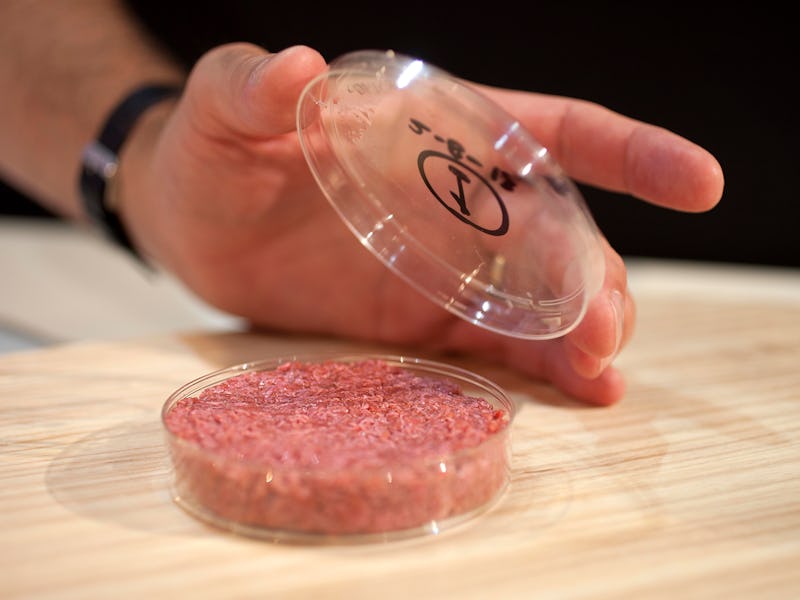The Dutch Want Lab Grown Meat in Stores by 2020
We will live to feast on an ethical hamburger.

Guilt is the most painful dinner guest. You know the miserable life of factory farm animals, you feel for them, but, confronted with the dripping flesh of a double bacon cheeseburger, hunger defeats conscience. Good news: Lab-grown meat should be on the market by 2020.
Food technician Peter Verstrate and Maastricht University professor Mark Post are part of the group hosting the first International Symposium on Cultured Meat (October 18-20), where researchers are talking everything from 3D printed tissue to producing stem cells on a large scale.
The duo of Dutch researchers have formed a company called Mosa Meat and grew meat from stem-cells in 2013, but developing it cost a prohibitive £215,000 — more than $331,000. Now, company head Verstrate says it’s on track to have a far more reasonably priced version on sale soon.
Burgers are grown in a petri dish using stem-cells from cow muscle.
The stem-cells are taken from a cow’s muscle tissue, cultured by nutrients for three weeks in a lab until they number in the millions. Then they’re put into dishes where they firm into strips of muscle that are layered and mixed with fat. Taste testers who tried the 2013 version said it tasted exactly like a real burger, though less juicy.
An early version of the burger cost more than $331,000 to produce.
“I feel extremely excited about the prospect of this product being on sale,” Verstrate told the BBC. “And I am confident that when it is offered as an alternative to meat that increasing numbers of people will find it hard not to buy our product for ethical reasons”.
Early taste testers described the burger as having a similar flavor to beef, but less juicy.
If you don’t empathize with animals, surely you can find some ethical concerns that are all about humans. If you’re an inmate in California during drought conditions, a cow will have better access to water than you do. The greedy heffers suck up, on average, 23 gallons of water a day to a human’s one.
The New Republic reports that system of raising and slaughtering them is not only inhumane but a staggeringly inefficient waste of resources while they idly fart methane gas into the atmosphere. They’re helping send New Orleans and Miami to a watery grave.
And the mournful mooing in the back of your head will finally fall silent.